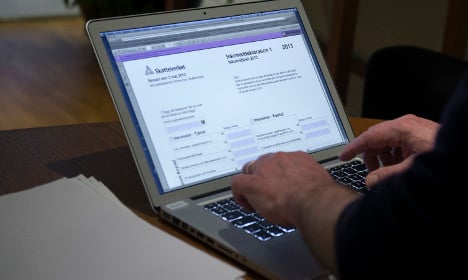The survey from pollsters Ipsos looked at 25 countries around the world, and found that only nine percent in Sweden think taxes are one of the three most worrying topics in their country. That made Sweden the second least tax-anxious country of all the nations polled, with only Peru (five percent) less bothered.
READ ALSO: So Sweden has high taxes? Not as high as you might think
Perhaps not coincidentally, Sweden was also the country least worried about financial and political corruption, with only eight percent of citizens in the country responding that it was one of the three issues which concerned them most. That was well below the global average of 33 percent.
Other issues the poll found Swedes to be generally nonplussed about were inflation (Sweden was the country least concerned about the matter with one percent) and poverty/inequality (where Swedes showed the third lowest concern at 28 percent).
So what do Swedes fret over? According to the Ipsos study, the country’s biggest concern is crime and violence (42 percent).
The field work for the Ipsos poll was carried out between August and September 2016, and there were several high-profile crime stories in Sweden around that time period, including the death of a young boy due to a grenade blast at Gothenburg apartment, and a series of summer car fires in Malmö.
The second biggest concern Swedes registered in the study was over immigration control (33 percent), echoing the heightened discussion of the topic in the country since it received a record 163,000 asylum applications in 2015.
The third biggest concern registered by Swedes was unemployment, somewhat surprising considering the country’s unemployment rate has been on a downward curve in recent years.
A final point of note was that Sweden was the European country in the study most worried about climate change, and the third most concerned about it in the world (joint with Australia).
The topic is an important one in green-keen Sweden, which recently set aside 1.8 billion kronor ($210 million) to initiatives focusing on the environment and climate change in its latest budget.



 Please whitelist us to continue reading.
Please whitelist us to continue reading.